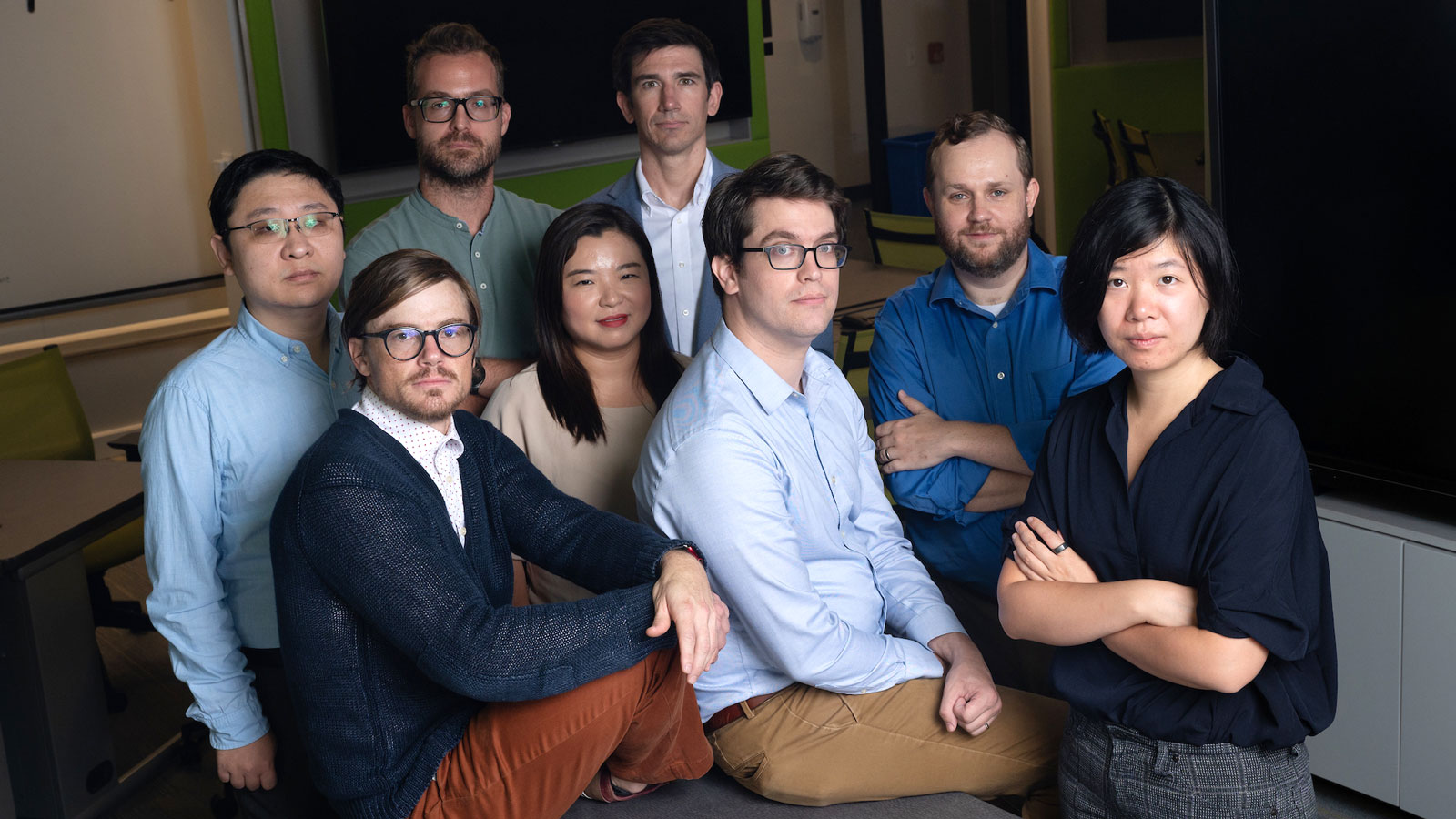This article originally appeared in the 2022 issue of Rice Engineering Magazine.
Anastasios “Tasos” Kyrillidis shares the credit with family and students for the NSF CAREER Award he won this year — one of eight given to young faculty members in the George R. Brown School of Engineering.
“Such awards are not the result of a single person’s effort. Kudos and much appreciation to my family for standing by me all these years and supporting this effort. Kudos also to my amazing group of students who have supported me for the past three years. This is not an award that I would solely receive,” said Kyrillidis, assistant professor of computer science (CS).
The highly competitive five-year grants from the National Science Foundation are given to early career faculty members who show potential to become leaders in research and education. The NSF gives about 500 such awards annually. This year, Rice engineers broke the previous record by collecting eight CAREER Awards.
Another recipient, Geoff Wehmeyer, assistant professor of mechanical engineering (MECH), likewise praised his students and colleagues and said:
“The award will have a practical impact. It will advance our understanding of heat transfer at the nanoscale and bring cutting-edge research into the classroom. It’s fun talking with Rice alumni who heard about the award because many of them have stories to share about how heat transfer affects their industry.”
Beyond the impact the award will have on her research, Xue “Sherry” Gao, the T.N. Law Assistant Professor of Chemical and Biomolecular Engineering (ChBE), said:
“Our research platform will be the foundation for my goal of attracting middle schoolers, high school students and undergraduates to STEM, particularly in the areas of synthetic biology and CRISPR technology. We will prepare underserved undergraduates for the challenges of STEM majors and assist teachers in research and developing new learning modules for their students.”
Kaiyuan Yang, assistant professor of electrical and computer engineering, sees the CAREER Award as an affirmation of his research goals:
“The award allows me to pursue my research vision on reliable, secure, minimally invasive bioelectronics. It will bring together the major pieces of my lab’s research: bioelectronics, ultra-low-power mixed-signal circuits and computing, and hardware-enabled security. We will develop a one-of-a-kind platform for emerging bio implants.”
Vicky Yao, assistant professor of CS, plans to move her research in a new direction:
“Although unsure how the reviewers would react, I proposed a pivot from my previous work to a topic that has been intriguing me lately — a biological process called DNA methylation, one of the interfaces between the external environment and the inner workings of our cells. Along with that I’ve been pondering how I could contribute to increasing diversity in STEM — specifically, what we can do to improve science literacy and education, especially for lower-income students. I want to develop Rice’s connections with local high school biology teachers.”
Thomas Senftle, assistant professor of ChBE, whose research specialization is heterogeneous catalysis, interprets his award as an endorsement of his future:
“We call it an ‘award’ but it is not like most awards that are a recognition of what one already has accomplished. Rather, the CAREER Award is a recognition of what the field expects one to accomplish — it is given towards the beginning of the journey and not at the end.”
Senftle expects to develop a research program that integrates machine learning with simulation methods to design heterogeneous catalysts. “Specifically,” he said, “we want to control the behavior of metal nanoparticles supported on oxide surfaces, which are catalytic materials essential to several energy and environmental technologies.”
Daniel J. Preston, assistant professor of MECH, is grateful for the boost the award will give his research:
“It will support our lab’s work on textile-based wearable assistive robots. This technology has the potential to benefit the 85 million adults in the United States living with physical functional limitations.”
He added, “The emphasis of the CAREER Award on integrating outreach and education means that we also have support for mentoring undergraduate researchers, developing new lesson plans, and creating an exhibit for the Children’s Museum of Houston.”
For Nathan Dautenhahn, assistant professor of CS, the CAREER Award is “a crystallization of a lot of different threads into one really focused pitch for how I think I can change the way we build secure computing systems. That’s my passion.”
The $630,000 grant will help fund his “Least-Authority Virtual Architecture” (LAVA) computer security strategy. Dautenhahn proposes sealing security gaps that would otherwise cost industry and the public billions of dollars.
“These tools,” he said, “will be easy enough to use that any parent can get it and say ‘Oh, yeah, now we have access to a computer science lab and our kids will get to learn about security and how to build things and they’ll do it in a way that actually matches their level of expertise in the way they like to learn.’”
Four members of the Wiess School of Natural Sciences faculty at Rice also received CAREER Awards.

